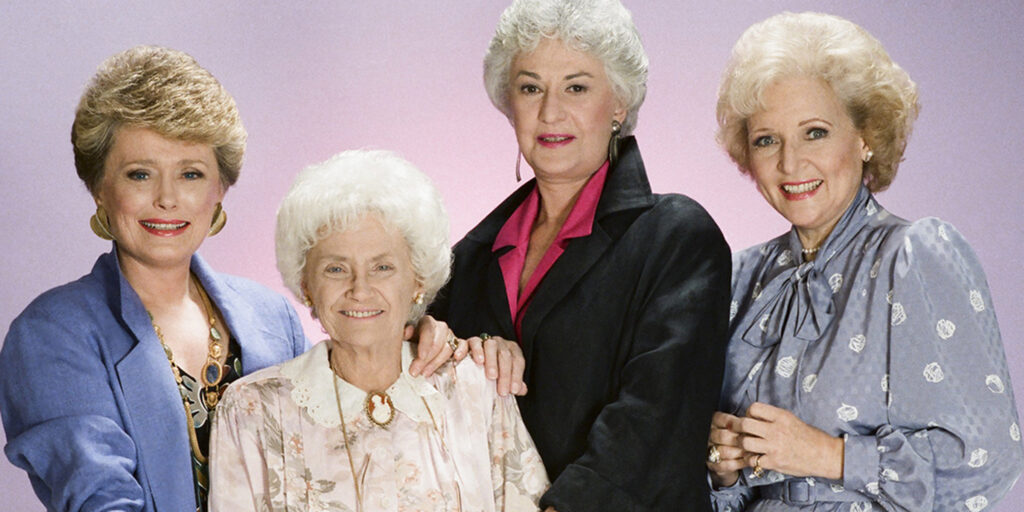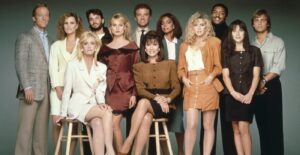
Today, we look at when (or if) you folks believe that The Golden Girls “jumped the shark.”
This is “Just Can’t Jump It,” a feature where we examine shows and whether they “jumped the shark.” Jumped the shark (coined by Jon Hein) means that the show had a specific point in time where, in retrospect, you realize that show was going downhill from there (even if, in some rare occasions, the show later course-corrected). Not every show DOES jump the shark. Some shows just remain good all the way through. And some shows are terrible all the way through. What we’re looking for are moments where a show that you otherwise enjoyed hit a point where it took a noticeable nose dive after that time and if so, what moment was that?
The Golden Girls was a long-running sitcom about four retired women living as roommates in Miami. It was a critical and commercial smash, and has remained a cultural touchstone for the 1980s.
So first…DID IT JUMP THE SHARK? I am going to say no.
WHEN DID IT JUMP THE SHARK Like all shows, The Golden Girls was not as good in its final season as it was in its early seasons, but it was still pretty much the same show. The SPINOFF that CONTINUED the show as The Golden Palace was bad, but the final season of The Golden Girls was still pretty darn good (alternatively, if you hated The Golden Girls Season 1-3, you’ll also hate the final season, but if you liked Season 1-3, you’ll like the final season).
Let me know what you think in the comments or on social media!
Feel free to e-mail me at brian@popculturereferences.com for suggestions for shows for us to do in future installments!










Another Day One. Never understood the love for this mediocre show, especially among my fellow gay men. It’s as unfunny as Empty Nest by the same creator, Susan Harris, and nobody give a damn about that show.
I don’t know how or why Golden Girls became the cultural juggernaut that it has, but I always thought it was a perfectly serviceable show. Neither extremely good nor extremely bad, it had a strong cast, and they had good chemistry on the screen.
I think a major part of the love for the show, besides the chemistry and timing of the cast, was that it depicted retirement age women who still had active social and especially romantic lives. That may seem quaint now but in the 1980s, Hollywood was still ruled by a “any woman over 30 is old” mantra. If CBS’ “AMAZING SPIDER-MAN” had been more popular in the late 1970s, I am sure one of the women above would have been cast as the doting Aunt May in some guest appearance.
Nowadays, we not only have a generation eager for shows about sassy women who are older, but who had to put off many of their own wants, life milestones and wishes, and are doing it later. Few people can afford a house in their 20s or 30s (if ever). Many people have to still live with their parents. Student loan and other debt is literally making families wait longer to settle down and have kids. Back in the 1980s, a woman who had a child in her 40s was a novelty; now it’s far more common. So some flashback to a show which taught, albeit in crude ways, that life doesn’t end just because a woman is over 65 seems to be timely for many. But that’s just my take. I was never fond of the show, either.